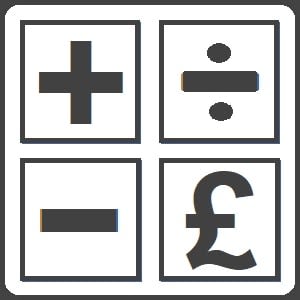Understanding DPNI in the UK

Understanding DPNI in the UK - Self-employment or Direct Payment Scheme?
In the UK, understanding your employment status is critical, not just for compliance with tax laws but for ensuring that you're paying the correct taxes and National Insurance Contributions (NICs). In some cases, what might be considered "self-employment" is, in fact, subject to the Direct Payment Scheme (DPNI), and it’s important to recognize when this applies. Misunderstanding this distinction could lead to costly tax mistakes.
What Is DPNI?
The Direct Payment Scheme (DPNI) applies when you, the worker, are responsible for paying your own tax and NICs directly to HMRC. This often arises in situations where an employer is based overseas and does not operate PAYE (Pay As You Earn) in the UK. As a result, the worker must account for their own taxes – but this doesn’t necessarily mean they’re self-employed.
Under DPNI, the worker might be treated as if they were employed for tax purposes, but the employer is not required to deduct PAYE or NICs. It can create confusion, particularly for those who believe they are operating as self-employed individuals. In fact, you might be a disguised employee, and HMRC will expect you to make tax payments under DPNI rules.
Common Misunderstandings: Are You Self-employed or Under DPNI?
Many workers who provide services to foreign companies, or who work for employers without a UK presence, believe that they are automatically self-employed. However, the distinction isn’t always so clear-cut. Just because you’re responsible for your taxes doesn’t mean you’re running a business.
Are you DPNI or Self-employed?
If you're working in the UK for a foreign employer who does not operate a PAYE scheme, you may be subject to DPNI or related schemes such as the DPGEN Scheme or DCNI Scheme. Different schemes should be applied in specific employer records when standard PAYE procedures are not appropriate. These schemes are designed to handle PAYE tax payments and National Insurance Contributions (NIC), which may cover only tax, both tax and NIC, or just the employee's NIC. While these schemes may seem similar to self-employment due to the direct payment of taxes by the worker, they do not confer self-employed status.
The key here is understanding that DPNI is not self-employment. While both require you to handle your own tax reporting, under DPNI you’re effectively an employee for tax purposes, not a sole trader.
How to Know If DPNI Applies to You
You may be subject to DPNI if:
- You work for an overseas company that doesn’t operate a PAYE system in the UK.
- Your employer does not withhold tax or NICs from your pay, and you are responsible for paying them directly to HMRC.
- You do not have the risks associated with running your own business but are required to handle your own tax obligations.
If this describes your situation, you could be under the Direct Payment Scheme, not self-employed. You might think you're a contractor or freelancer, but if the terms of your agreement don’t give you full control of the work or involve taking on the business risks, you’re more likely working under DPNI.
Why It Matters: The Risks of Misclassification
Misunderstanding your employment status and thinking you're self-employed when you're really subject to DPNI can lead to significant tax consequences. For one, you may fail to report your income correctly, leading to penalties or interest from HMRC. Furthermore, you may miss out on potential employee benefits, such as pensions or paid leave, because you’re not classified as an employee in the traditional sense.
This is why it’s so important to seek advice. If you’re not sure about your status, check with a tax adviser or accountant. They can help you determine whether you’re truly self-employed, or if DPNI applies to your situation.
Foreign Employers and UK Workers: A Complex Relationship
The rise of foreign companies hiring UK talent only increases the importance of understanding DPNI and related schemes. As a UK worker employed by an overseas business, it’s crucial to understand who is responsible for your tax obligations. Foreign employers might not be familiar with UK tax laws, and it’s often the worker’s responsibility to ensure everything is in order. However, foreign employers also have obligations under UK law and should take steps to avoid leaving workers in a tax grey area.
Let Us Handle the Complexity
The UK's Direct Payment Scheme and the blurred lines between employment and self-employment can be difficult to navigate. Whether you're unsure about your employment status or concerned about tax implications, we’re here to help. At the end of the day, it’s not about guessing; it’s about getting it right.
#DPNI #DirectPaymentScheme #UKTax #SelfEmploymentUK #HMRC #UKPayroll #PAYE #UKFreelancers #UKContractors #UKTaxCompliance #ForeignEmployerUK #TaxStatusUK #NICs #UKAccountants #TaxAdviceUK #EmploymentStatus #UKSelfEmployed #UKTaxHelp #HMRCDPNI #UKWorkCompliance
Contact Us
Send a Message
Get in touch to discuss with us how we can best assist you.
